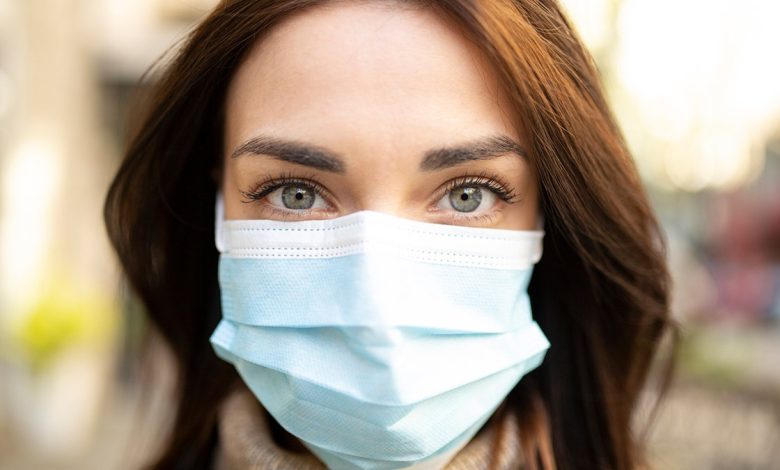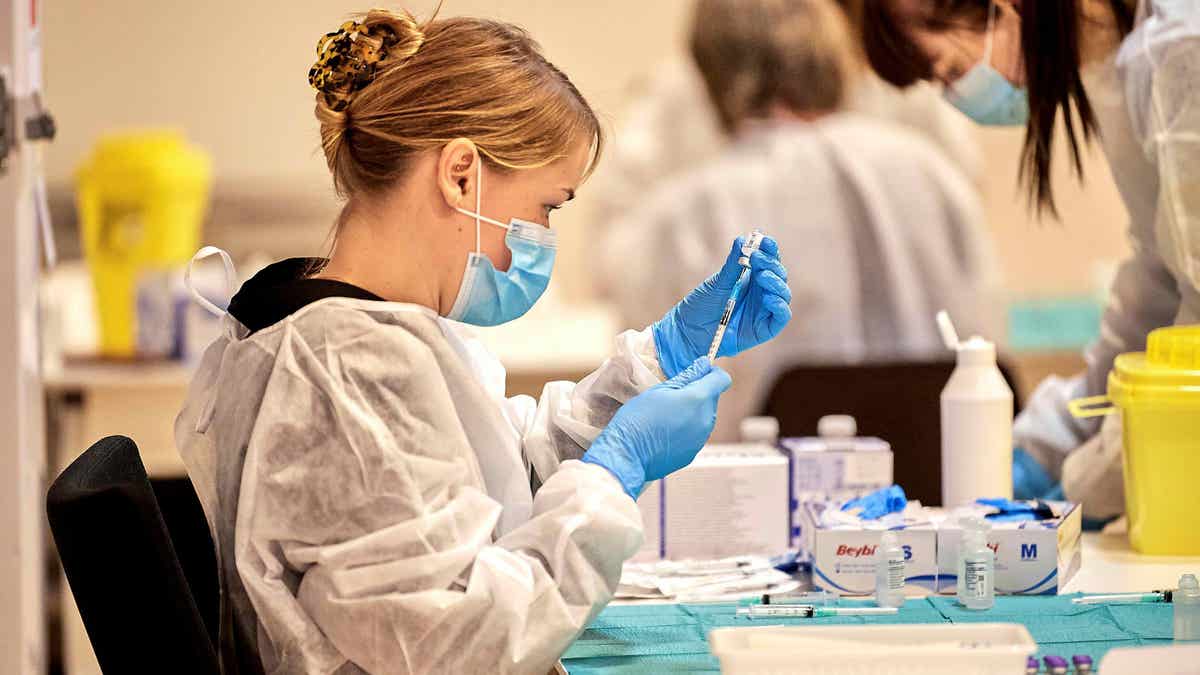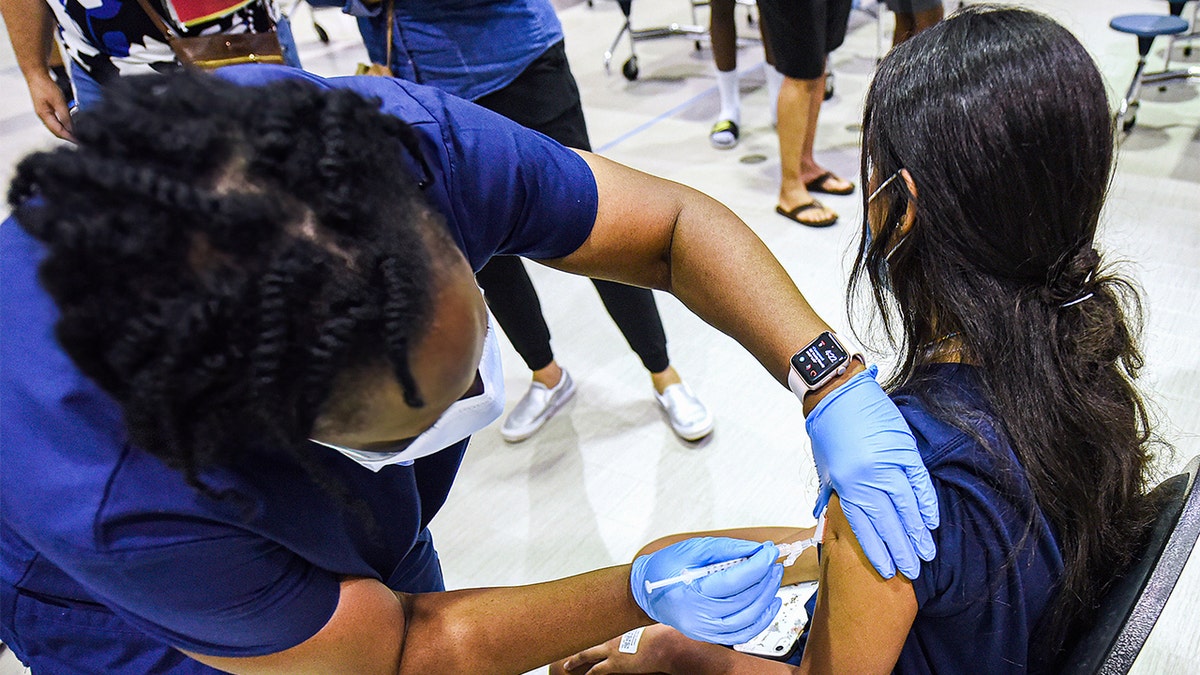5 years after COVID, Americans are split on whether it’s still a threat

This winter marks five years since the onset of COVID-19, the infectious disease caused by the SARS-CoV-2 virus that led to a global pandemic and more than 1.2 million deaths in the U.S.
To mark the milestone, Pew Research Center conducted a survey to gauge Americans’ views on the current COVID risk and how the pandemic was handled.
Around 21% of respondents said they still consider COVID-19 to be a “major threat” to the health of the U.S. population, down from 67% in July 2020.
NEW BAT CORONAVIRUS DISCOVERED IN CHINA SPARKS PANDEMIC CONCERNS
More than half (56%) of Americans say COVID-19 isn’t something to worry about, with 39% believing people do not take it seriously enough, the survey found.
This winter marks five years since the onset of COVID-19, the infectious disease caused by the SARS-CoV-2 virus that led to a global pandemic and more than 1.2 million deaths in the U.S. (iStock)
Around 40% of Americans believe COVID-19 is “no worse” than a cold or flu, while 56% say it is worse than those illnesses, the survey found.
In terms of testing, 63% of people say they should take a COVID test when they feel sick, while one-third say there is “no point” in doing this.
In the event of another pandemic, just over 60% of survey respondents said the public health system would do a “very or somewhat good job” of dealing with a future health emergency.
POSITIVE PEOPLE CAME THROUGH COVID BETTER THAN OTHERS
When it comes to masking, 80% of Americans say they “rarely or never” wear a mask in stores and businesses, although about 40% would wear them in crowded settings if they were feeling sick.
Forty percent of Americans believe the U.S. would handle a future health emergency better than it handled COVID. In comparison, 16% believe the country would do worse and 43% said the response would be about the same, the survey found.
Mental health impact
Dr. Michael Aziz, a board-certified attending physician at Lenox Hill Hospital in New York City, noted the dramatic impact COVID had on mental health.
“Studies observed a higher prevalence of psychopathological symptoms during the pandemic for persons with pre-pandemic mental illness, suggesting that this group experienced a greater burden from the pandemic,” he told Fox News Digital.
80% of Americans say they “rarely or never” wear a mask in stores and businesses.
Today, five years after the pandemic, Aziz said there are higher rates of depression, isolation and anxiety, something he sees “every day” with his own patients.
“There were also delayed learning abilities in children who were in lockdowns,” the doctor said. “Studies show there were developmental abnormalities from both face masks and lockdowns.”
Lingering health effects
Before the COVID pandemic, the prevalence of obesity was at 11% and 15% among men and women, respectively, according to Aziz.
During the pandemic, it increased to 25.3% and 42.4% in men and women.
“People neglected their health more when it was supposed to be the opposite,” Aziz told Fox News Digital. “People tended to go for their physicals less often, with remote work being the norm.”
“The government response to COVID taught us that clear, consistent and continuous community engagement is essential.”
Some people have reported COVID symptoms that lasted for months or even years.
“This lingering illness has often been called ‘long COVID’ or ‘post-COVID-19 syndrome,’” Aziz said.
This condition is also sometimes called “long-haul COVID” or “post-acute sequelae of SARS-CoV-2.”

“Studies show there were developmental abnormalities from both face masks and lockdowns.” (REUTERS/Brendan McDermid/File Photo)
“It is known that COVID-19 affects older people with higher mortality, but many young people in the U.S. were affected and even died,” Aziz said. “The mortality rates in the U.S. were 10 times higher than Japan and South Korea.”
This means aging is happening at a much younger age in the U.S., according to Aziz.
“This is not a good thing for future health spans, effect on healthcare or future costs to care for age-related diseases,” he added.
Lessons learned
Since the pandemic, Americans have largely learned that they are responsible for their own health and for “making individual decisions about bolstering their immunity to infectious diseases,” according to Donna Petersen, professor at the College of Public Health at the University of South Florida.
“Individual responsibility for health is important, but collective responsibility for health benefits all of us, whether we choose to take individual responsibility or not,” she told Fox News Digital.
CLICK HERE TO SIGN UP FOR OUR HEALTH NEWSLETTER
Dr. Benjamin Barlow, chief medical officer of American Family Care in Birmingham, Alabama, said the pandemic highlighted how quickly a novel virus can spread and impact a community.
“The pandemic alerted us to the fact that we need to really pay attention to the global health scene and think about how outbreaks in other countries might affect us and start preparing,” he told Fox News Digital.

COVID-19 highlighted the need for medical providers to have access to a greater supply of personal protective equipment and better communication with testing suppliers, one expert said. (Ritzau Scanpix/Nils Meilvang via REUTERS/Files)
COVID-19 also highlighted the need for medical providers to have access to a greater supply of personal protective equipment and better communication with testing suppliers, Barlow noted.
Dr. David Lenihan, CEO and co-founder of Tiber Health, a global medical education startup in New York City, shared his insights on how the country handled the pandemic.
CLICK HERE TO GET THE FOX NEWS APP
“The government response to COVID taught us that clear, consistent and continuous community engagement is essential,” Lenihan, who is also the CEO of Ponce Health Sciences University, a medical school with campuses in Puerto Rico, Missouri and the British Virgin Islands, told Fox News Digital.

Since the pandemic, Americans have largely learned that they are responsible for their own health and for “making individual decisions about bolstering their immunity to infectious diseases,” one doctor said. (Paul Hennessy/SOPA Images/LightRocket via Getty Images)
“Such connectivity facilitates that when there is a healthcare emergency, enough people know they can trust the guidance of their leaders as well as government departments, organizations and facilities.”
For more Health articles, visit www.foxnews.com/health
Another big lesson from the pandemic, according to Lenihan, is that it’s essential for all medical experts and professionals to be “completely transparent” about which specific actions need to be taken for the benefit of society.



